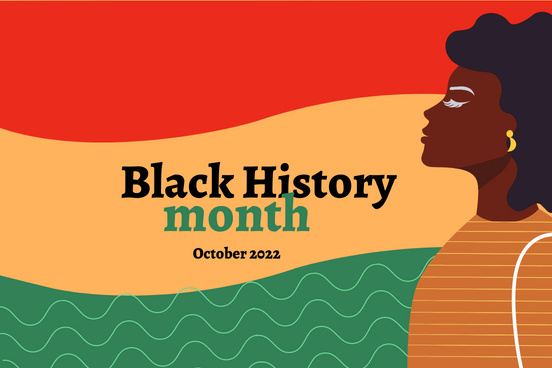Three ways firms can help Black staff thrive beyond Black History Month
| By Laura Castelli | 0 Comments

Black History Month may be coming to an end but that doesn’t mean we should table the conversation about supporting black employees within companies.
There needs to be an ongoing effort by business leaders to improve inclusivity and integration of BAME communities in the workplace. Although much has been done for inclusivity, sadly minority communities still face many challenges with their professional progression after passing the first few hurdles.
So how can firms build a better environment for black employees to better support them? Here are three things you could implement:
- Re-evaluate your protocols and gather feedback
One of the first things to do is to re-examine your internal procedures and company structures. By analysing the data available to you within your organisation, you can identify the areas of organisational dynamics that need improvement.Research has shown that UK black employees hold only 1.5% of senior roles, which has only increased 0.1% since 2014 [1]. This reveals a deep-rooted organisational problem that generates barriers affecting progression of BAME communities.Although many companies may argue that the opportunities for senior roles for BAME employees exist but there aren’t enough BAME employees to be considered, this highlights a bigger problem faced by minority communities in workplaces.
Surveys have revealed that 46% of black employees plan to leave their workplaces due to negative experiences with workplace culture and racism in the UK [2]. This coupled with the systemic barriers to their progression makes it extremely difficult for representation of BAME in leadership to improve.
Therefore, it’s important to create a systematic and continuous method of gathering feedback from your minority employees in order to learn and build better working experiences.
- Encourage difficult conversations and educate within your organisation
While data is important to power better decision making, it’s also important to have those necessary and sometimes difficult conversations within your company.In the post pandemic world where we are adopting an “everything back to business” mindset, it can be easy to sweep certain problems under the rug as we focus our efforts on recovering industries. However, in order to create positive change, the conversations surrounding inequality still need to be encouraged – and regularly.For example, conversations about the gender pay gap need to also address the extremely low percentage of less than 0.1% of black women being top earners in the UK [3]. While the gender pay gap is a different challenge in the workplace, we cannot neglect the role that race has in it as well.
By regularly having such conversations, employees within firms can better learn and understand the workplace experiences of BAME communities and empower introspection within your firm that leads to positive changes.
- Lead consciously with purpose and build trust
Building a workplace culture that supports black employees may arguably be redundant without trust in the leadership.You could be creating an outstanding structure within your organisation that supports growth of BAME employees but if they don’t believe you have their best interests as a priority, you will likely still see poor retention of minority employees.A culture of trust is largely built around the credibility of leadership, an atmosphere of fairness and demonstrating a high level of respect for all employees. It is important that those in leadership positions have contact with minority employees and seek to understand their experiences within the workplace.
Although we often blame the “system” for inequalities and leaders are responsible for changing it, they must remember that they are also part of the system and therefore will be doing or not doing things that hold minority communities back.
Speaking to BAME employees and asking simple questions like “how could I support you?” or “do you feel there is anything I may be doing unintentionally that is blocking you?” is powerful in getting the insight necessary to create change. It can also help facilitate more conversations in the workplace around inequality.
These recommendations will not be the definitive driving force for positive change however it is a good starting point for firms to improve. Companies will need to be consistent in their efforts beyond Black History Month and continuously learn and adapt their approaches in order to move towards creating workplaces where employees are valued and treated fairly.
References:

